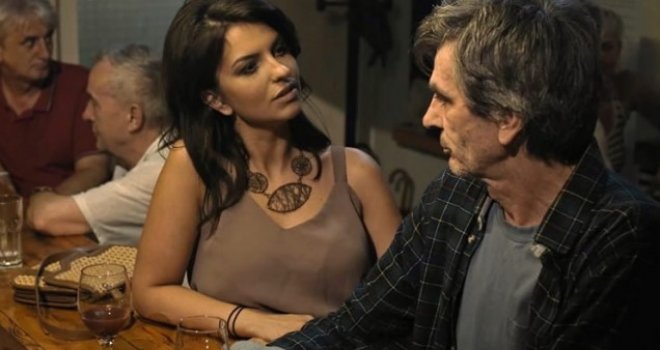By Goran MILANOVIC
Although it wasn't one of those films that garnered much attention last year at festivals around, a belated viewing of Jasmin Durakovic "Glory of Emptiness" offers a series of surprises. His previous films, particularly "Nafaka" (2026) and "Sevdah for Karim" (2010), significantly deviated from the prevailing trend of films emerging after the dissolution of Yugoslavia and the wars of the nineties. "Nafaka" was a lavishly produced narrative that bravely caught the other side of the war in besieged Sarajevo and the early years of peace, crafted in the dramatic and cinematic style reminiscent of American films from the seventies, yet also influenced by the aesthetics associated with Emir Kusturica films. "Sevdah for Karim," on the other hand, was a discreet noir love drama set in post-war Sarajevo. Apart from their intriguing cinematic approaches, these films didn't delve into the grand themes of the Bosnian war and its aftermath, hence weren't as appealing to major international festivals compared to some other Bosnia films and filmmakers. His lesser-known film "I Am from Krajina, the Land of Chestnuts" (2013) paid homage to Krajina, while the solid international co-production "The Final Barrier" (2016) about the Balkan refugee route remained under the radar of the regional Southeast Europe film scene.
"Glory of Emptiness" marks Duraković's return to his dominant cinematic themes, revolving around the fate of individuals in a world devoid of compasses and universal values. The film's main character, Sado, a former journalist and writer, now a passive observer of a world in rapid transition with an unknown destination, embodies precisely that. The film follows his story from the moment he leaves his wife and son and moves into a small apartment in the Sarajevo neighborhood of Grbavica. He has lost everything except his books, thus he endeavors to retrieve the books he once lent to others in his past life. This quest for books becomes a journey in the film, where we get acquainted with Sado and his past. Enter Maja (Ena Kurtalic), a young student adrift in life, with whom Sado establishes first a sexual and then an emotional relationship. He doesn't need much – as he himself states in the film, he is a lonely dog in need of just a drop of love.
Besides this individual story, the film offers a fierce and unprecedented depiction of political and social realities, touching upon corruption, the destruction of historical complexes like the famous Skenderija, the deconstruction of existing cultural models, and Islamization in today's Sarajevo, imbuing the film with a new dimension reminiscent of what was once referred to as the "black wave" in Yugoslav cinema. The director underlines this from the very beginning of the film when the main character, portrayed with great restraint by the renowned Bosnian actor Senad Basic, emerges from an outdoor toilet reminiscent of the one in Zika Pavlovic film "When I'm Dead and White," and through the incorporation into the film's narrative structure of a real presentation of a work by one of the greatest names of the "black wave," Bora Cosic, at the literature festival "Bookstan."
And therein lies the biggest twist of this film. Alongside fictional characters, real-life figures appear in the story. Besides Cosic, there's a ballet dancer from the National Theater, a local culture journalist, and the renowned conceptual artist of world renown, Jusuf Hadzifejzovic, who repeatedly performs his art at the Charlama gallery during the film, giving the film its title.
Just when you think this is the overall setup of the film, it abruptly transitions, somewhere around its midpoint, into a crime drama where the body count starts to rise, inevitably leading to the appearance, as genre conventions dictate, of a police investigator. This injects new momentum into the film; the story flows better towards its unpredictable conclusion. The scene in Sado's apartment where the investigator (brilliantly portrayed by the recently dead Mirsad Tuka) solves the case through books is almost iconic.
Perhaps the film's greatest strength lies in this transition from the drama and the reality of life into the stylistic language of the crime genre. The director achieves this through the subtle use of music (Toni Lovic), which is minimalist at times, serving to accompany the inner state of the main character, while at other times, it becomes a stylistic tool of the genre, emphasizing the dramatic nature of the story. All these elements combine to make the film, alongside the works of the Croatian filmmaker Zoran Tadic from the eighties of the last century, one of the best genre films of this kind in the former Yugoslav territories.
"Glory of Emptiness" by Jasmin Durakovic is, in its entirety, a small yet significant film in Bosnian-Herzegovinian and regional cinema, offering a fierce portrayal of social and political traumas of contemporary Sarajevo, while being a rare and successful winning combination love crime story and peace of art.
(BL/gm)
